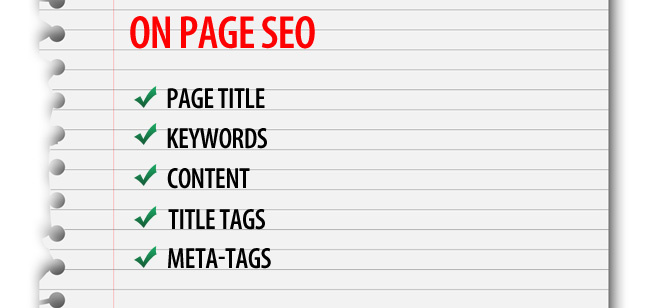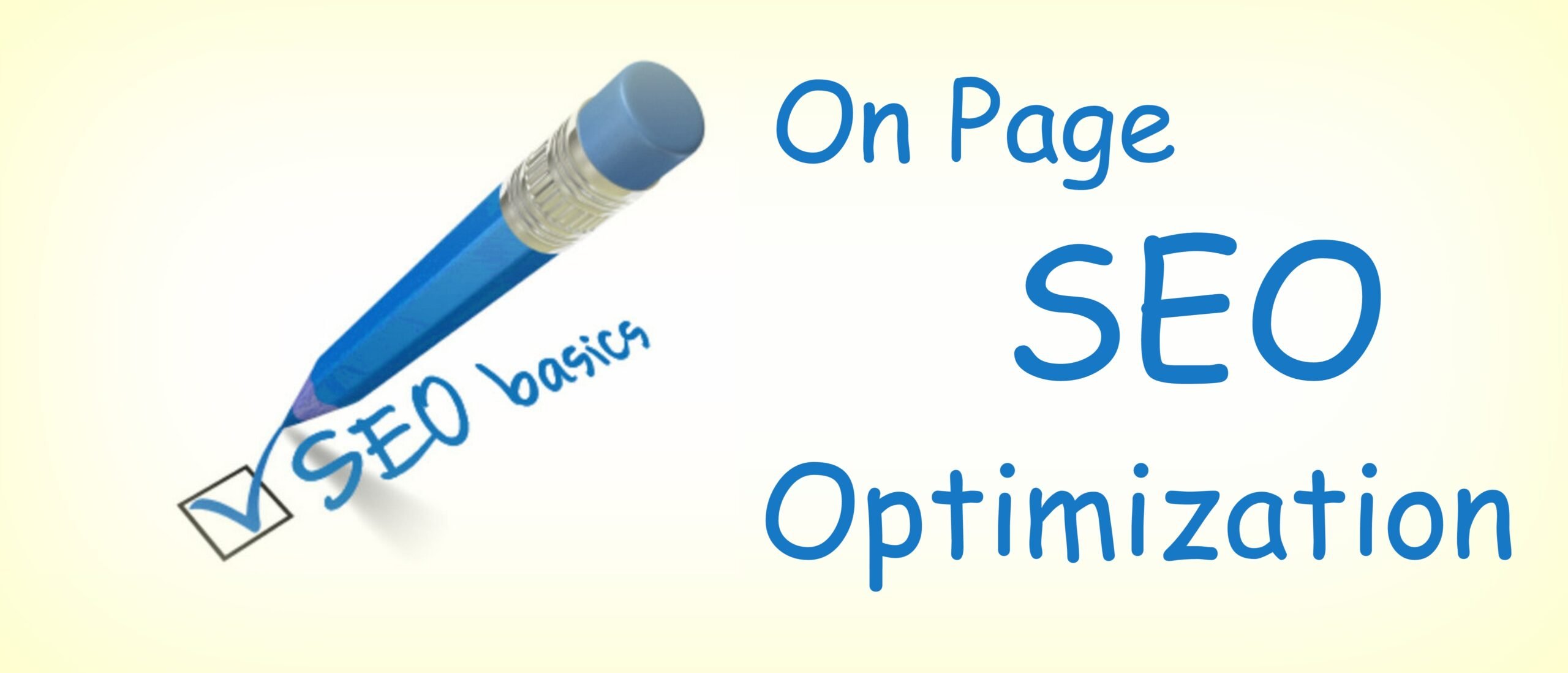On-Page SEO
On-Page Optimization of the website means the measures were taken and techniques applied on the web pages directly to improve its search engine ranking. On-page SEO considers all aspect of the web pages that when combine together improve the search engine ranking of the website. Keyword density, keyword placement, Html codes and Meta tags play important role in on-page optimization of the website.
There are millions of websites running on the web for the same purpose. In this hugely competitive market, Search Engine Optimization (SEO) plays an important role to stay apart from the crowd. When someone looks for a service or product related to your firm, you will not get the benefit until you are not on top ranking of search results. SEO is a technique of improving the search engine ranking of your website as much as possible to drive huge relevant traffic to your website. Search Engine Optimization can be categorized as On-Page Optimization and Off-Page Optimization.
Need of on-page SEO
- To rank better in search engine result
- Increase overall readability of the website
- Give better exposure to website in search engine
- Optimize individual web pages
- Earn more relevant traffic on website
On-page SEO Factors
The on-page factors that influence the search engine ranking of the website are optimized for better ranking of the website in search result. These factors are controlled at the time of Html coding and content writing. Let us have a look at these factors:

- The content of the page content of each web page plays extremely important role in search engine ranking of the website. It must be unique, well written and relevant to the website. Website content must be informative that describe the purpose, services etc. in detail. The content of each page must have an internal and external linkage that helps in improvement of the search result of the website. The content of the web pages must be long and interesting can engage people when the visit your page. It boosts your Dwell time. If a visitor clicks on back button immediately after entering your page, it is called Dwell time. Google mark your page content for improvement in such case. Avoid too much multimedia content that reduces bounce rate and increase page load time.
- SEO Friendly URLs: URL of each web page must maintain information hierarchy. URL structure of the web page helps search engine to understand relevancy metric of given page. It is better to add the relative keyword in URL. Short and keyword rich URLs are search engine friendly and help in improving search engine ranking.
- The title of the web page: Title is the very first thing shown and indexed by the search engine. It must be short, descriptive, worth, appealing enough to search engine for better page ranking. You should include most appropriate keyword, toll-free number, your service or business name. It is good to wrap the title of the page in <h1> tag. You can add modifiers to your page title. It is better to wrap subheadings in <h2> tag. It is better to include target keyword in at least one subtitle of the page.
- Keywords: Keywords play an important role in on-page optimization of the website. It is very important to research for relevant keywords. Keywords are the words people use to search on the web for their requirement. After satisfactory research, decide relevant keywords for your web pages. Placement of proper keywords in your web page add plus point in search engine ranking but keep the keywords density moderate. The high density of keyword in the content is declared as spam by the search engine. Use of moderated keyword density and LSI keywords i.e. synonyms or related words of the keyword assures the search engine that the page is relevant to the keyword. It is better to include focused keyword within first 100 words of the content.
- Boost Site Speed: website loading speed is one of the most important factors to consider for good search engine ranking. If the website takes more than 3 seconds to load, the search engine automatically decreases page ranking. Most visitors also avoid slow loading websites. Use of Content delivery network (CDN), compressed images, switching to faster hosting etc. can help in boosting website speed.
- Image Optimization: when web crawler goes through your web page, it is not able to read images. Use of Alt Text in image tag add benefit. It is good to use target keyword as a part of alt text of <img> tag. Use a meaningful name for the image file. If you are linking your image, must use the keyword as link text.
- Link Optimization: The internal and external links created in web pages must be optimized for better page navigation experience to search engine and user both. Use appropriate text for anchor tag that must have the proper meaning. Internal links must be clear and explained properly i.e. where it is taking to. In the case of using CMS, use of permalinks is a good choice. It adds much value in search engine results.
Important factors that must be considered for on-page SEO
Responsive web design automatically increases search engine ranking of the website. Mobile friendly website design is required for good ranking of the website in search result.
Creation of Outbound links in web pages helps search engines to figure out page topics and help in increasing page ranking.
Creation of at least 3-4 Internal links in every post adds a positive point to your website.
Include social media presence to your web pages improves your social sharing. It improves your site search and indirectly improves search engine ranking of the website.

